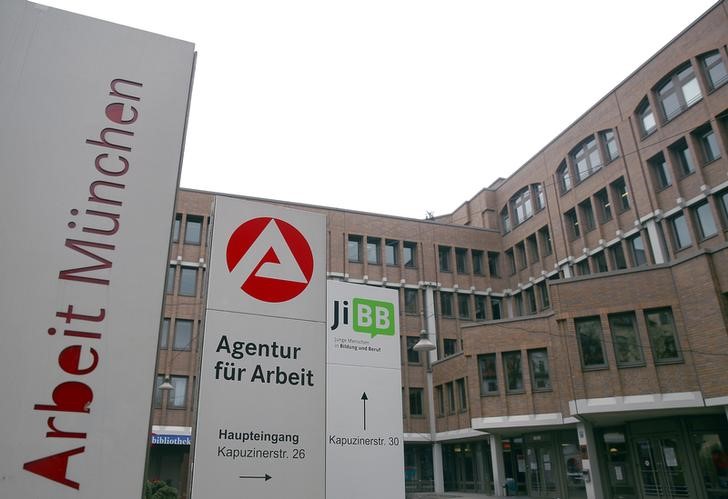By Michael Nienaber
BERLIN (Reuters) - The coronavirus pandemic further hit Germany's labour market in May as companies continued to slash thousands of jobs and put millions of employees on reduced working hours, data showed on Wednesday.
The bleak figures, published by the Labour Office, came as Chancellor Angela Merkel's ruling coalition wrestled over the final details of a stimulus package to help firms and employees in Europe's largest economy recover quickly from the crisis.
The number of people out of work in May rose by 238,000 to 2.875 million in seasonally adjusted terms, the data showed. A Reuters poll had predicted a rise of 200,000.
The unemployment rate jumped to 6.3% from 5.8% in April.
"The labour market remains under immense pressure due to the coronavirus pandemic," Labour Office head Detlef Scheele said. But he added that unemployment did not rise as much as in April.
Companies logged requests to put 1.06 million people on reduced working hours under the government's Kurzarbeit short-time working scheme from May 1 to May 27, the office said.
That was in addition to requests for 10.66 million people made in March and April combined, the labour office said, adding that this did not, however, mean that all of those people would actually end up on the scheme.
"Short-time work has clearly exceeded the level of the 2009 crisis," Scheele said. Around 1.5 million people were on the programme back then.
Short-time work is a form of state aid that allows employers to switch employees to shorter working hours during an economic downturn to keep them on the payroll.
A poll by the Ifo economic institute published on Tuesday showed the number of workers in Germany on reduced hours had risen to 7.3 million as the pandemic affects most sectors.
